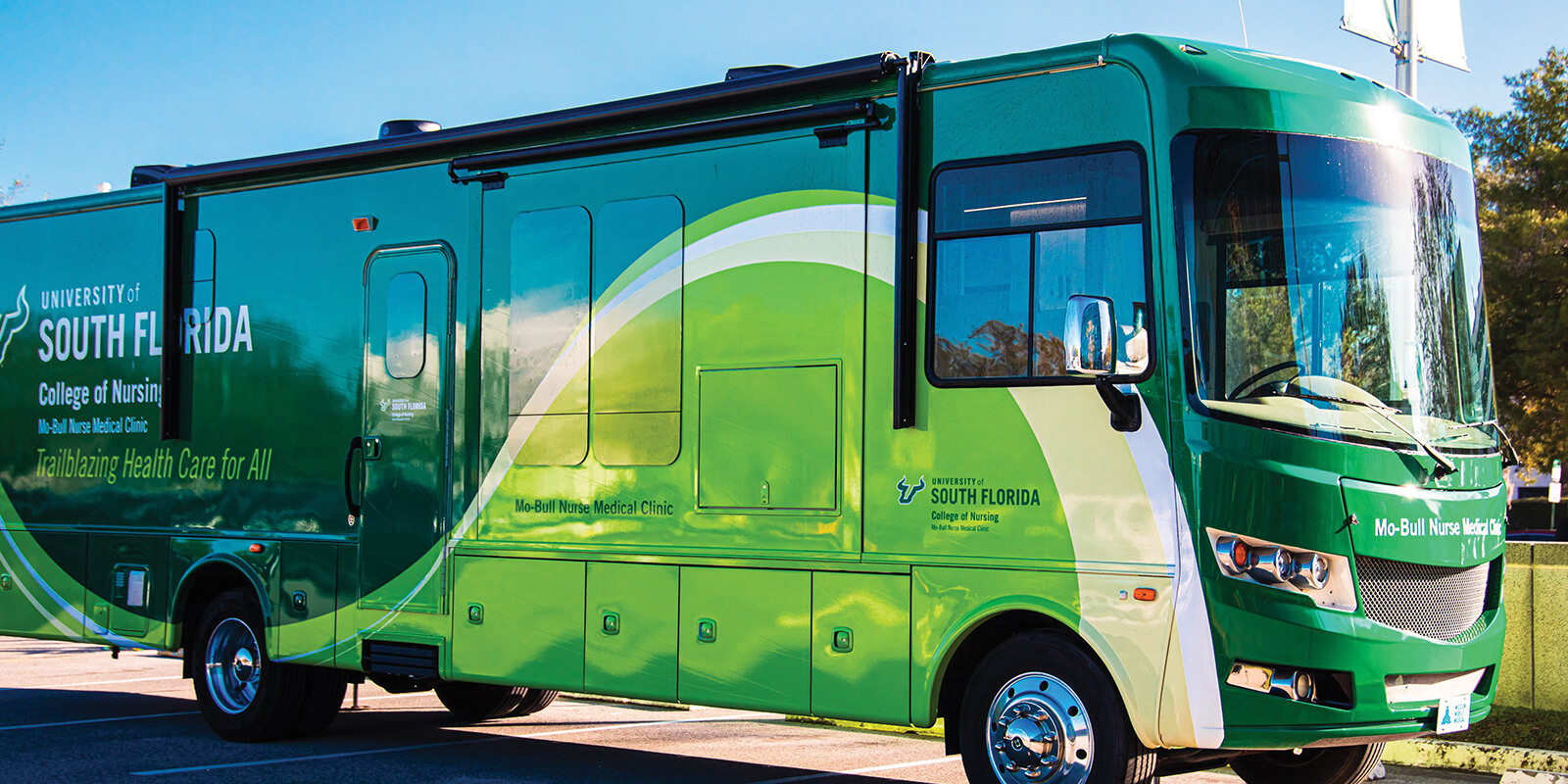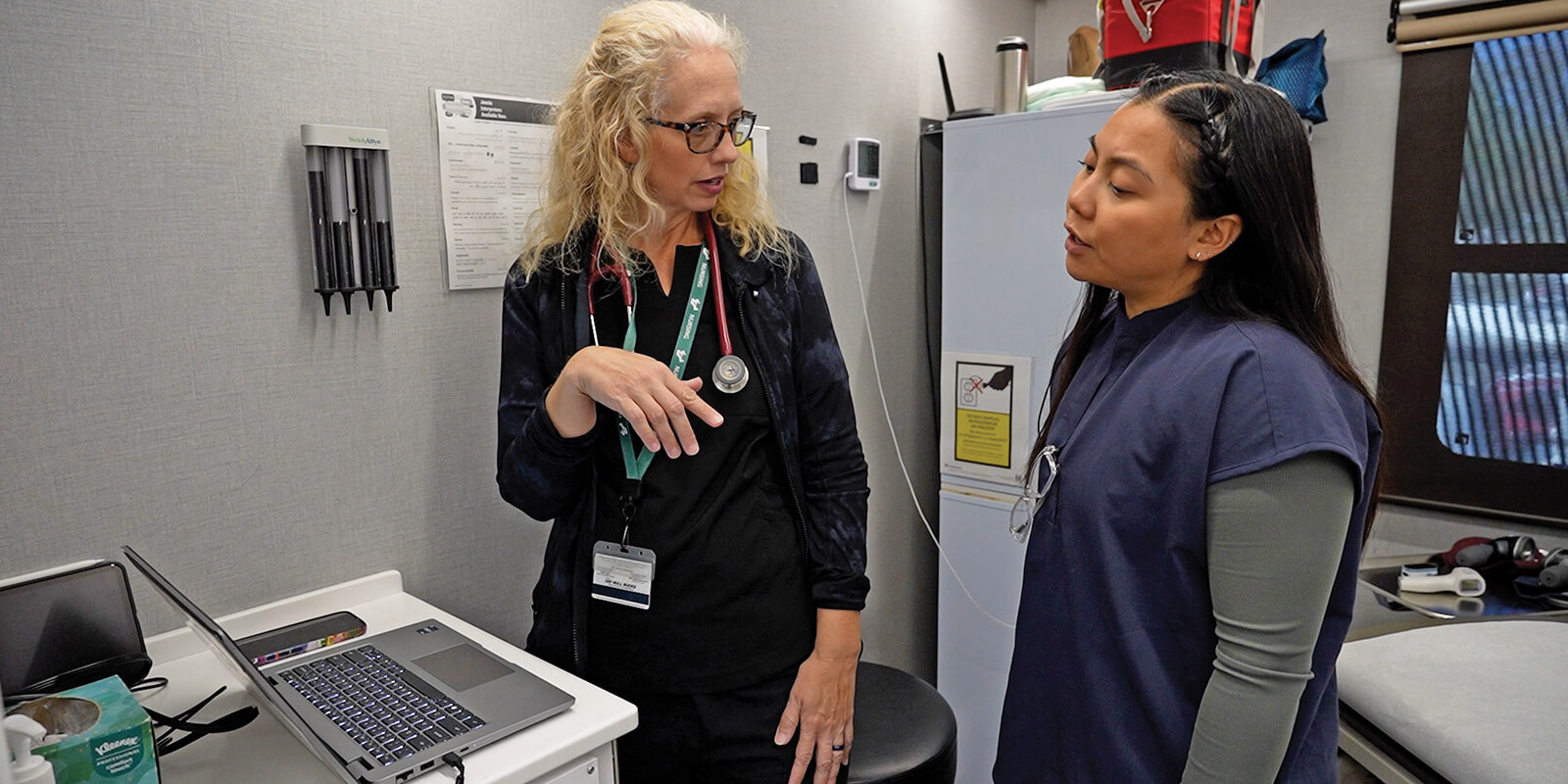
Mo-Bull Nurse
Clinic provides essential health care — and hands-on experience
 aniela Woerner has extensive nursing credentials, including bachelor’s and master’s degrees and seven years’ experience working as a registered nurse.
aniela Woerner has extensive nursing credentials, including bachelor’s and master’s degrees and seven years’ experience working as a registered nurse.
But the time she spent working in the USF Health College of Nursing’s Mo-Bull Nurse Medical Clinic last fall proved to be a different kind of educational experience.
It was, she says, “eye-opening.”
The college partners with 13 sites on a rotating basis in Hillsborough and Pinellas counties, bringing the mobile clinic to locations that include Tampa Bay Downs, Tampa Hope, the Salvation Army, St. Matthew’s Anglican Church in Riverview and the Enoch Davis Center in St. Petersburg.
“We partner with sites where there are patients living in the area who don’t have the resources to get medical care,” explains Duellyn Pandis, MS and DNP ’17, Life Member, the college’s director of clinical practice. “They may not have the funds, or transportation. They may be unhoused. Our mobile unit is not like a health fair. Our purpose is primary care.”
The converted recreational vehicle is staffed with two nurse practitioners, a patient care coordinator and two patient health-care navigators, and it serves as a clinical training site for nursing students. The project is funded through a Health Resources and Services Administration grant titled “Nurse Education, Practice, Quality and Retention.”
The clinic also serves as a training ground for students in USF’s College of Public Health and the Taneja College of Pharmacy.
A frequent challenge for the mobile clinic nurses is trying to get previously undiagnosed conditions, such as diabetes, elevated cholesterol, COPD and heart disease, under control.
“For those who are unhoused, they probably don’t have money for medicine either, and if they’re diabetic, you can imagine what is going on with their blood sugar level,” Pandis says. “The more elevated that is, the more likely they will have other issues, such as with their vision or losing the sensation in their feet.”
Returning to the partner sites on a rotating basis means the nurses can provide continuing care and students can gain more experience.

Assistant professor Melissa Bogle (left) and graduate student Ashley Tran Scott, ’20, work in the Mo-Bull clinic during a visit earlier this spring to Lealman Exchange Community Center in St. Petersburg.
“There are people living in some very poor conditions, who are going without health care simply because they’re down on their luck,” Pandis says.
Woerner, MSN ’23, served her rotation in the mobile clinic during the fall 2024 semester as she pursued her doctor of nursing practice degree, which she’ll receive this month. Many of the patients she saw were homeless, which was a new experience.
“It just opens your eyes to the social determinants of health,” she says. “It’s one thing to learn about it in the classroom versus actually seeing it with your own eyes.”
Woerner believes her time in the mobile clinic deepened her understanding of the everyday struggles that others may be facing.
“An experience like that makes you more empathetic, less judgmental,” she says. “Sometimes, providers are quick to say a patient isn’t complying with what they’re being told to do. But when you see the conditions they are living in, you realize the reason they aren’t adhering to their treatment plan may not be because they don’t want to. They may not have the resources.”
Summer Camps ->

